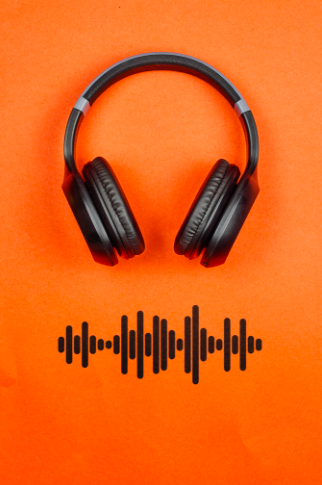Music has the power to heal and inspire
The effects of music on the mind, body, and soul
March 11, 2021

Today, streaming is the most common way to listen to music. The average person spends close to 18 hours a week listening to music on streaming devices such as Spotify, Apple Music, and Pandora.
Music is a coping mechanism and virtually “free therapy” for junior Sabrina Spatny. “I listen to music probably every minute of the day that I’m not asleep, and even when I’m sleeping I have music playing,” Spatny said. “I listen to 2000s throwbacks when I feel a little stressed because it immediately makes me feel more confident and more capable of handling my school work.”
When an artist releases music, they use their music to express themselves and communicate with their audiences. However, music is not only a one way outlet for artists to share their emotions, but it can alter the emotions of the listeners as well.
There are different forms of music: upbeat, energetic music; slow tunes; and solemn melodies. Depending on the song you are listening to, your spirits can either be lifted, your nerves calmed down, or your once happy mood can be dampened.
“I listen to music when I’m sad, in the need of cheering up, or really want to get hyped up,” said junior Nicole Matar. “When I’m going somewhere or on a road trip, music calms me down in the car.” The primary types of music Matar listens to are indie and alternative music. However, when doing school work she switches to songs with low-fidelity beats without lyrics.
For patients who suffer from a heart attack and are in intensive care, music can be a powerful healing mechanism. Authors Stefan Koelsch and Lutz Jäncke of the European Heart Journal reviewed past research to find connections between music and cardiovascular health. Their studies showed music can help lower blood pressure and heart rate in patients with heart disease.
While this doesn’t fully cure chronically ill patients, it does decrease the anxiety of agitated patients. Additionally, listening to music before, during, or after surgery can calm patients’ nerves and significantly reduce pain, according to a series of clinical trials published in The Lancet.
High school students often face high levels of stress in their academic and personal lives, and it comes as no surprise that listening to music serves not only as an escape from reality, but also as a way to lower stress levels and improve concentration.
Listening to music can reduce students’ anxiety in the academic environment and put them more at ease when studying. “Music helps me while I do homework because it helps me focus,” said junior Aleek Jivalagian. “I’m the type of person who has a very short attention span, so if I have two things to focus on like music and homework, then it helps me concentrate better.”
A study from University of British Columbia showed that students who took music classes in school showed a higher performance in their classes. “Learning to play a musical instrument and playing in an ensemble is very demanding,” said Martin Guhn, a researcher from the study. “A student has to learn to read music notation, develop eye-hand-mind coordination, develop keen listening skills, develop team skills for playing in an ensemble and develop discipline to practice.”
The rigor of playing an instrument affects the students’ abilities to hone those skills in the classroom environment. Musicians see progress and results through practicing their skills, and in turn apply that mindset to other areas. Members of bands or school music groups also form bonds through playing music together that enhance their social skills.
Saif Ali, a Crescenta Valley High School alumni, was a member of the marching band in high school and has been playing the saxophone for over nine years. “Music opened up a lot of different avenues and opportunities I never would have imagined otherwise,” Ali said. “I feel like music gave me a sense of work ethic and production quality that I try to put into everything I do now, if I’m going to do something then it’s going to be completed to a standard that will be high quality and memorable”. Ali has traveled to Indianapolis and Dayton to perform musical productions and has met some of his closest friends through music.
Researchers from the Stanford University of Medicine conducted a study to test how music affects the brain in terms of concentration. “The study suggests one possible adaptive evolutionary purpose of music,” said Jonathan Berger, associate professor of music and co-author of the study. “Music engages the brain over a period of time and the process of listening to music could be a way that the brain sharpens its ability to anticipate events and sustain attention.”
While music is a beneficial source of healing and honing skills to some, it is not to all. Junior Emika Davis can only listen to classical music when studying or doing homework, if at all. “Listening to songs with lyrics distracts me and makes it hard to concentrate on what I’m doing,” Davis said. For people who are easily overstimulated, comprehension decreases when listening to music with lyrics as their “working memory” diminishes.
Depending on the type of person you are, music can either be a positive factor or a distractor. For people who get distracted easily by upbeat music and lyrics, classical music has shown to increase focus and interpret information easily. For people who feel down or suffer from depression, listening to live music is linked to releasing oxytocin which helps us bond and socialize with others. Music can have contrasting effects based on different circumstances, but it has been shown to be a powerful mechanism nonetheless.